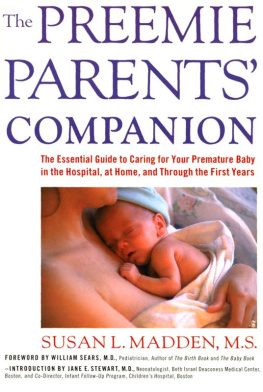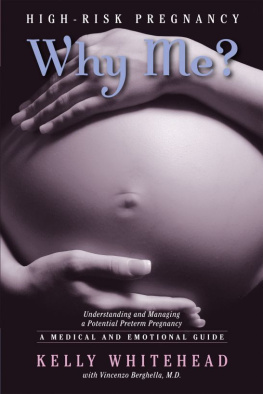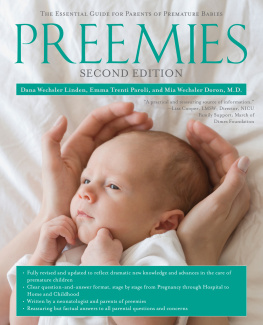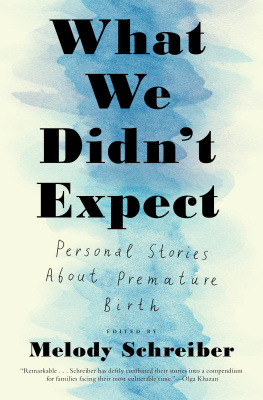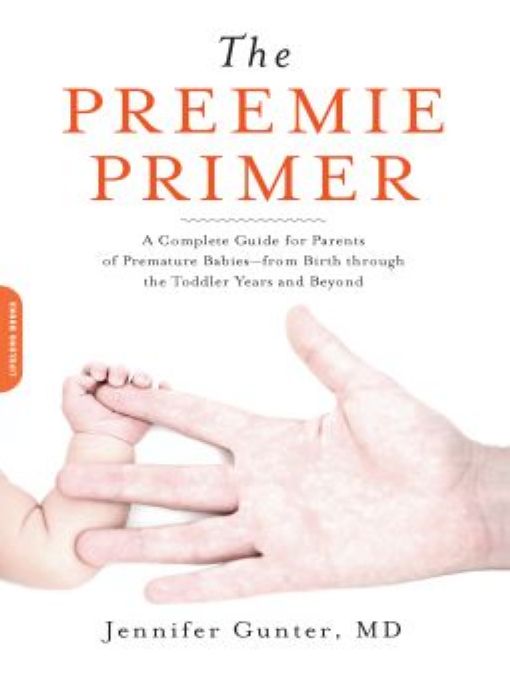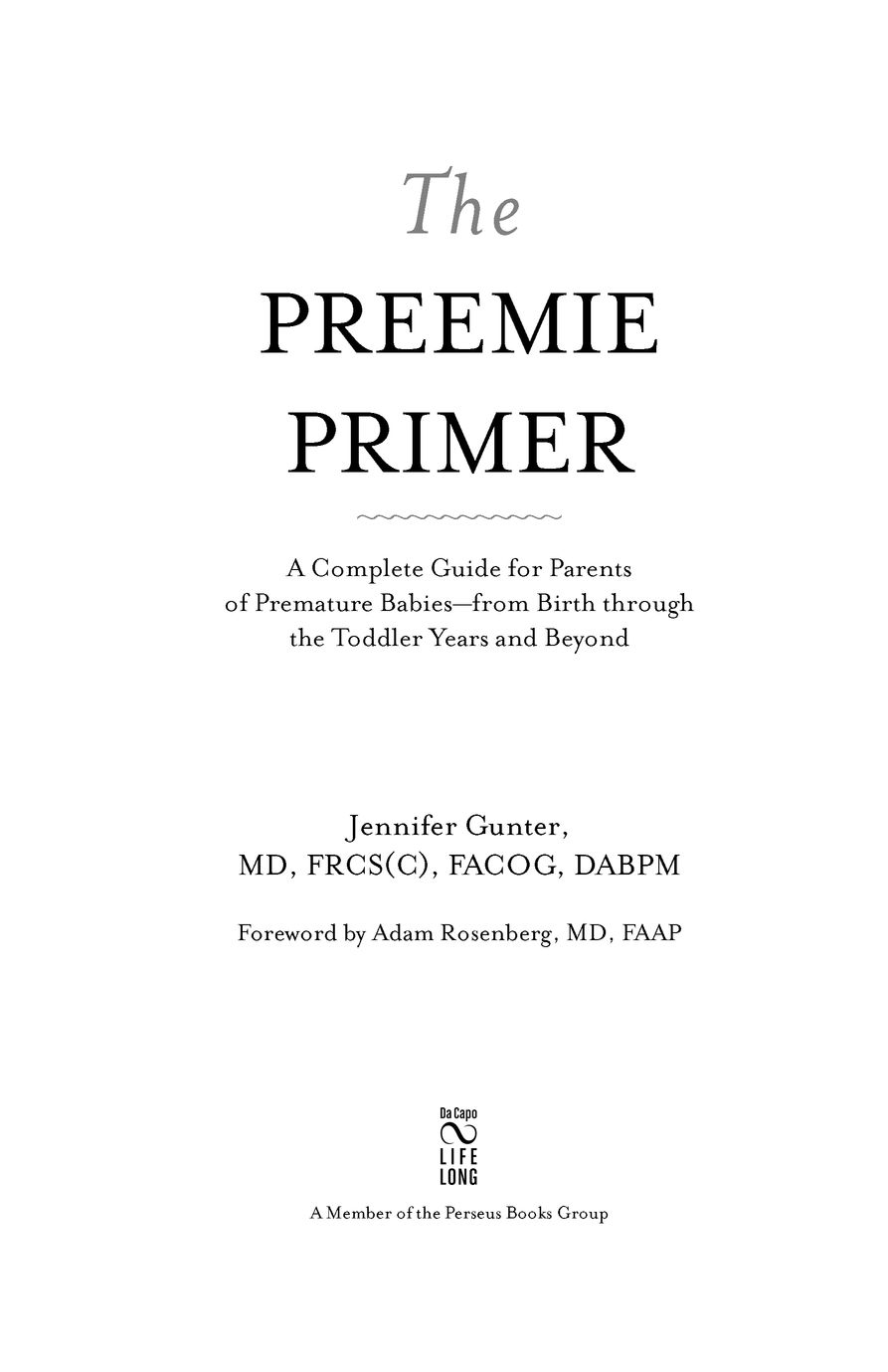Table of Contents
For Oliver and Victor, who continue to prove that they were born prematurely to give other kids a chance.
And for Aidan, who was lost but not forgotten.
Foreword
The Preemie Primer is a unique and comprehensive review of prematurity and its consequences. For families, the book provides an accurate, single source of up-to-date information on all the acute medical problems of prematurity and the management of these problems. There are also very important chapters about caring for your baby after she is discharged from the neonatal intensive care unit (NICU) and brought home.
In addition to the extensive medical information, Dr. Gunter covers a number of important themes. First and foremost is the principle of advocating for your baby through an understanding of your babys condition. The doctors and nurses in the NICU are skilled experts in the care of preterm infants, but they change and rotate shift to shift, day to day, and month to month. Parents spend many hours by their infants bedsides and become intimately familiar with their babies cues of well-being and distress. This book takes that into account and empowers parents not to simply defer to the NICU staff, but to be a participating voice in their infants care. This is in your babys best interest.
A second very important theme is the importance of forging a close relationship with your childs primary nursing group. The bedside nurses are the most important personnel in the NICU. They are at the bedside 24/7 caring for your baby. They will keep you updated on a daily basis about your babys condition and progress and will provide invaluable information to the neonatologist and other physicians caring for your baby. Most NICUs have a system in which one or more nurses take your baby on as a primary patient. This means that whenever theyre scheduled to work, they will care for your baby. Next to you, theyll know your baby better than anyone, and they will help you advocate for your baby.
I would add to these themes another concept that is implicit. Always feel empowered to talk with the neonatologist. He or she is supervising the care of your baby and should ensure that you understand the medical treatment plan. When youre feeling at loose ends, ask for a conference with the care team.
Advocating for your baby does not stop with NICU discharge. The Preemie Primer provides useful information about services available after you bring your baby home to help attain the best possible outcome. Although they may be readily available, these services are often complicated to access.
Another unique aspect of The Preemie Primer is the sprinkling of personal stories about Jennifers own sons, Oliver and Victor. These vignettes make the medical information provided more real, and the suffering, uncertainty, and sometimes powerlessness of parents in an NICU more evident. Jennifer also emphasizes the very important issue of postpartum depression, which is often under-recognized by your babys medical team. This is a real medical condition requiring treatment and can be exacerbated by having a very sick preterm infant. Its never inappropriate to ask to see a therapist or psychiatrist with expertise in the management of postpartum depression. Some NICUs have someone available. If yours does not, ask your obstetrician or NICU social worker for a referral. You are less capable of helping your baby if youre struggling emotionally.
It is very moving for me to write a foreword for this important book for parents of preterm infants. I have practiced neonatology for nearly 30 years and took part in Oliver and Victors care in the NICU. Ive always tried to be sensitive to the needs of both families and babies, but Jennifers insights have served to make me more sensitive and awarefor that I am thankful.
I also have the good fortune to run a clinic for graduates of our NICU and was fortunate to care for Oliver and Victor until they moved away from Denver. Seeing them and the other remarkable children grow and overcome many obstacles is the most gratifying experience in my premature practice. They prove me wrong every day.
Although there were many moments of doubt, Jennifer truly maintained a glass-is-half-full approach and never hesitated for one moment to do whatever was necessary for Oliver and Victor. Im confident that readers will learn from the books medical knowledge and use it to be intimately involved in the care of their infants.
Adam Rosenberg, MD, FAAP
Professor, Department of Pediatrics
Division of Neonatology
University of Colorado
Denver School of Medicine
Prologue:
Our Story
Theres a well-entrenched theory that OB/GYNs have the most complicated pregnancies. In reality most of us probably do not, but doctors remember complications most vividly when they happen to people they know and love. My pregnancy was, unfortunately, a good example of that old adage. Many of my colleagues who looked after me during that time have said, It was the worst night of my life. To be remembered this way is odd, although I know they mean well.
I had been practicing OB/GYN for eight years, 13 if you consider residency, when my husband Tony and I decided we wanted a family. Things did not go as planned naturally, so after a frank discussion we decided to try one cycle of infertility treatment; if it didnt work we would adopt.
In February 2003, after a battery of blood tests, I started daily injections to try and coax my ovaries into action. My doctor tried to sound positive, but I can read ultrasounds and knew I wasnt responding well. I gave myself one cycle, and although I tried to put it out of my mind, it was difficult as there was so much time, energy, and money tightly packed in with our hopes and dreams.
I was very surprised when my cycle failed to start. Not wanting to make my disappointment public with blood work at the hospital, I took a home pregnancy test. A few minutes later I was standing in my bathroom looking at the stick, stunned beyond belief. Years of training simply vanished while I anxiously looked for a blue line. So I did a second one, and then a third to be sure.
I was pregnant.
And then I started to worry. I was afraid the pregnancy I had dismissed as impossible would somehow vanish. All those fears and desires I had efficiently locked away came flooding out. And then I had my first ultrasound and I realized we did have something to worry about: I was pregnant with triplets.
On July 5, 2003, when I was 22 weeks into the pregnancy, I woke up in the middle of the night in a pool of water and knew I had ruptured my membranes. I needed a few minutes to summon my courage, so I silently sat in our bathroom staring into the night. I felt as if I were in a way station between worlds. After a few minutes I would have no option but to stand up and move on. I could see my old life, one of constancy and control, slip away into the darkness and a new existence, more painful and uncertain, emerging. I took a deep breath and walked through the door.
We need to go the hospital right away, I said from the middle of the bedroom. My husband sat bolt upright. He could sense my harnessed panic. I knew he wanted to believe I was overreacting, that it was probably nothing, but deep down he understood.


